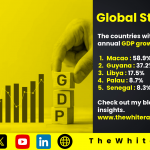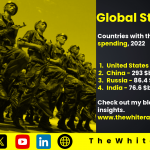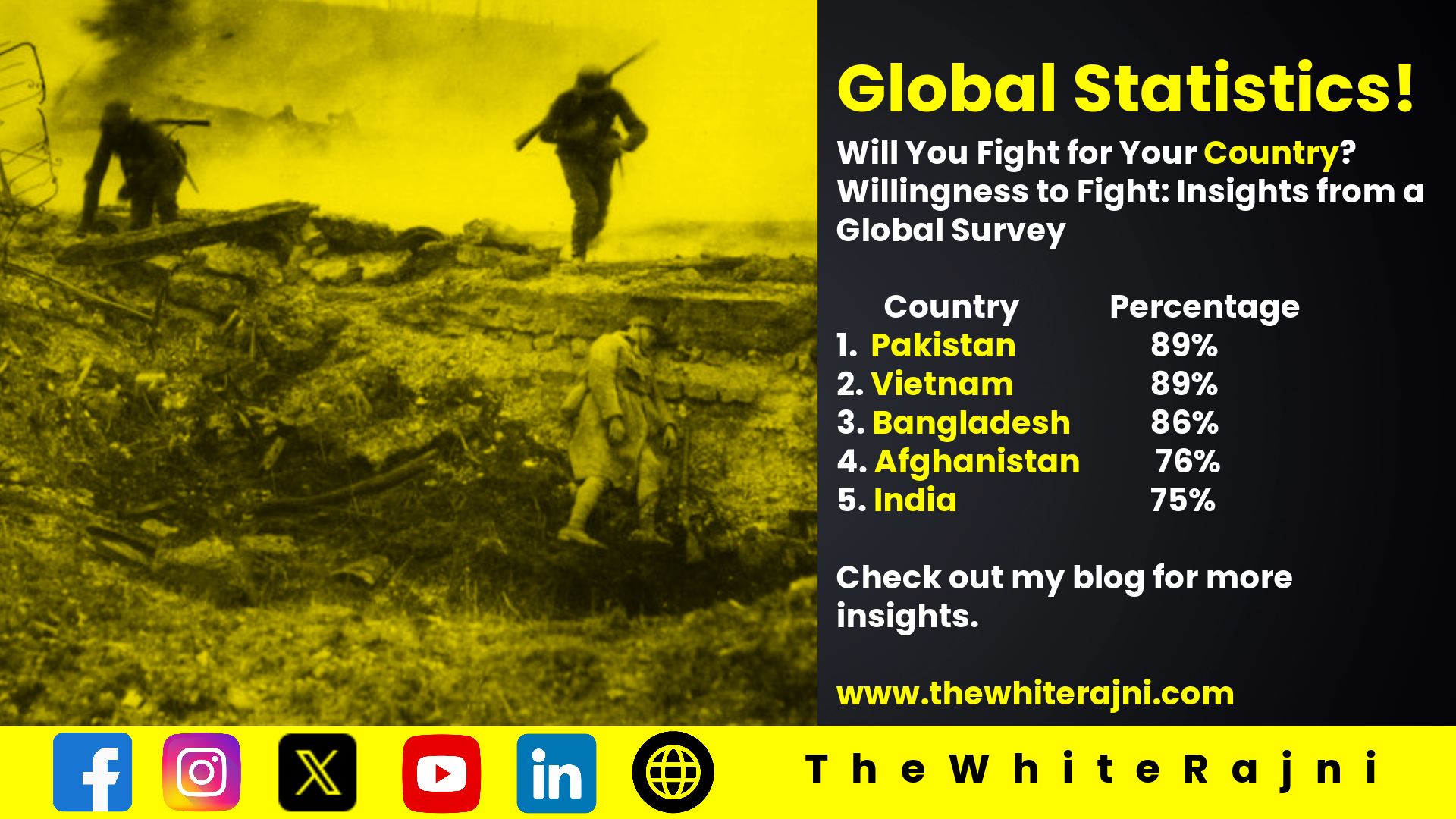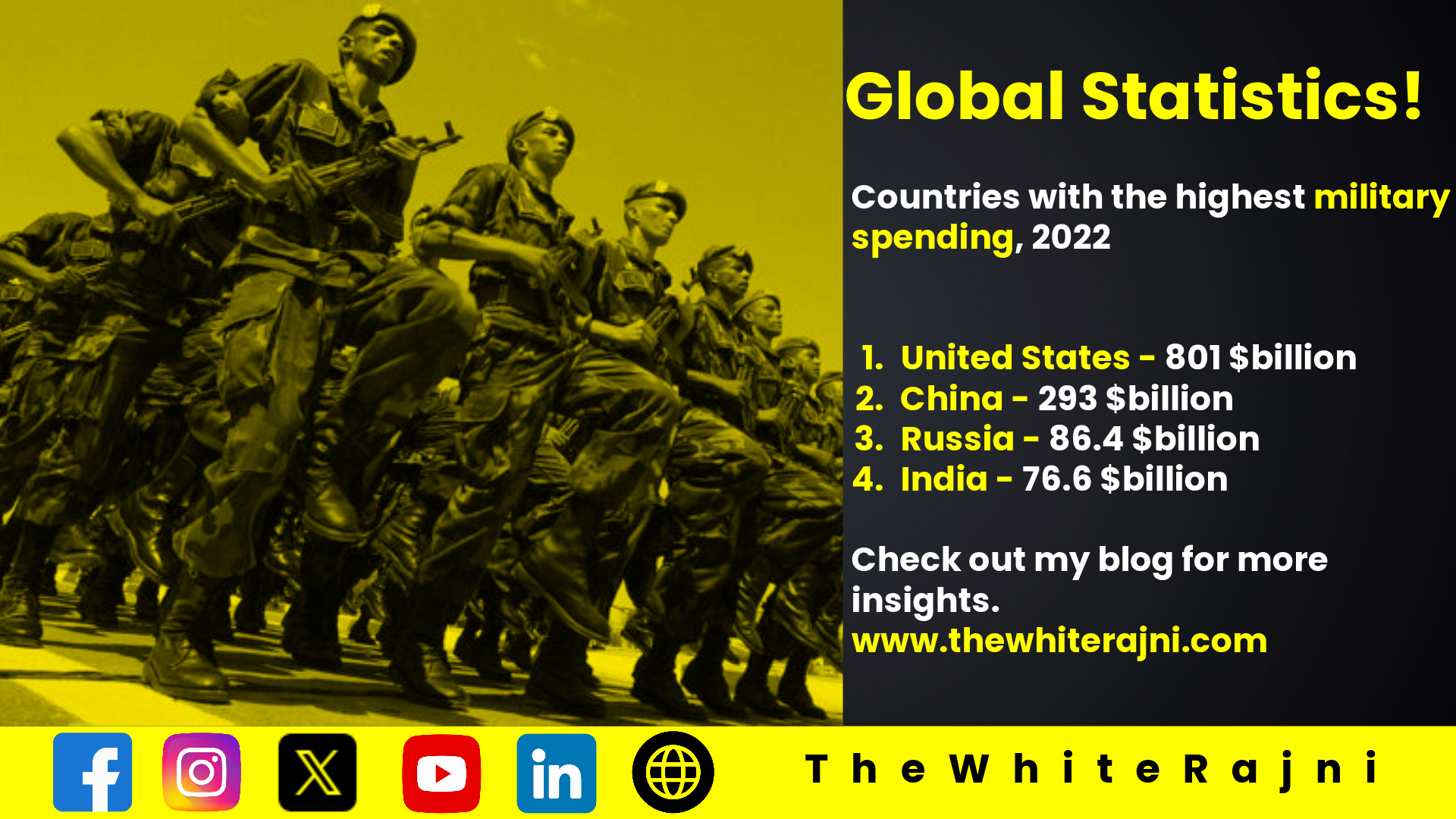In a world marked by diverse cultures, histories, and beliefs, the question of whether individuals would be willing to fight for their country yields intriguing insights into national pride, societal values, and geopolitical factors. A recent survey conducted by WIN/Gallup International has shed light on the varying degrees of willingness to defend one’s homeland across the globe. Let’s delve into the survey’s findings and explore the factors that influence this readiness.
Global Variation in Willingness to Fight
The survey encompassed a wide array of countries, revealing a striking diversity in the percentage of people willing to take up arms for their nation. Here’s a comprehensive table showcasing these percentages, complete with the flags of each respective country:
| Flag | Country | Percentage |
|---|---|---|
| 🇵🇰 | Pakistan | 89% |
| 🇻🇳 | Vietnam | 89% |
| 🇧🇩 | Bangladesh | 86% |
| 🇦🇫 | Afghanistan | 76% |
| 🇮🇳 | India | 75% |
| 🇫🇮 | Finland | 74% |
| 🇹🇷 | Turkey | 73% |
| 🇨🇳 | China | 71% |
| 🇮🇩 | Indonesia | 70% |
| 🇺🇦 | Ukraine | 62% |
| 🇷🇺 | Russia | 59% |
| 🇲🇽 | Mexico | 56% |
| 🇸🇪 | Sweden | 55% |
| 🇳🇬 | Nigeria | 50% |
| 🇧🇷 | Brazil | 48% |
| 🇵🇱 | Poland | 47% |
| 🇺🇸 | United States | 44% |
| 🇦🇷 | Argentina | 43% |
| 🇩🇰 | Denmark | 37% |
| 🇨🇦 | Canada | 30% |
| 🇦🇺 | Australia | 29% |
| 🇫🇷 | France | 29% |
| 🇬🇧 | United Kingdom | 27% |
| 🇨🇿 | Czechia | 23% |
| 🇪🇸 | Spain | 21% |
| 🇮🇹 | Italy | 20% |
| 🇩🇪 | Germany | 18% |
| 🇳🇱 | Netherlands | 15% |
| 🇯🇵 | Japan | 11% |
Key Insights from the Survey
The survey’s results offer valuable insights into the factors influencing an individual’s willingness to fight for their country:
- Regional Variation: People in Asia exhibit a higher propensity to defend their homeland, with Pakistan, Vietnam, and Bangladesh showing exceptionally high percentages.
- Historical Context: Nations with a history of conflict, such as Afghanistan, India, and Finland, display a greater willingness to fight for their country. Historical events and experiences often shape this readiness.
- Age Disparity: Younger individuals (aged 18-34) are generally more willing to engage in patriotic defense compared to their older counterparts (aged 55 and older). This age-related discrepancy highlights the generational aspect of this sentiment.
Factors Influencing Willingness to Fight
Several factors underpin an individual’s readiness to fight for their country:
- Personal Beliefs: Strong patriotism and a deep-seated connection to one’s homeland often fuel the desire to protect it.
- Perceived Threat: The belief that one’s country faces significant threats or challenges can motivate individuals to take up arms in defense.
- Age: Younger generations are often more idealistic and may be more inclined to defend their country.
The willingness to fight for one’s country is a complex blend of personal convictions, societal values, and historical context. While this survey provides valuable insights, it’s essential to remember that individual perspectives vary widely. Understanding the factors at play helps shed light on this intricate aspect of human behavior, and it remains a subject of ongoing study and analysis in the realm of social sciences.










